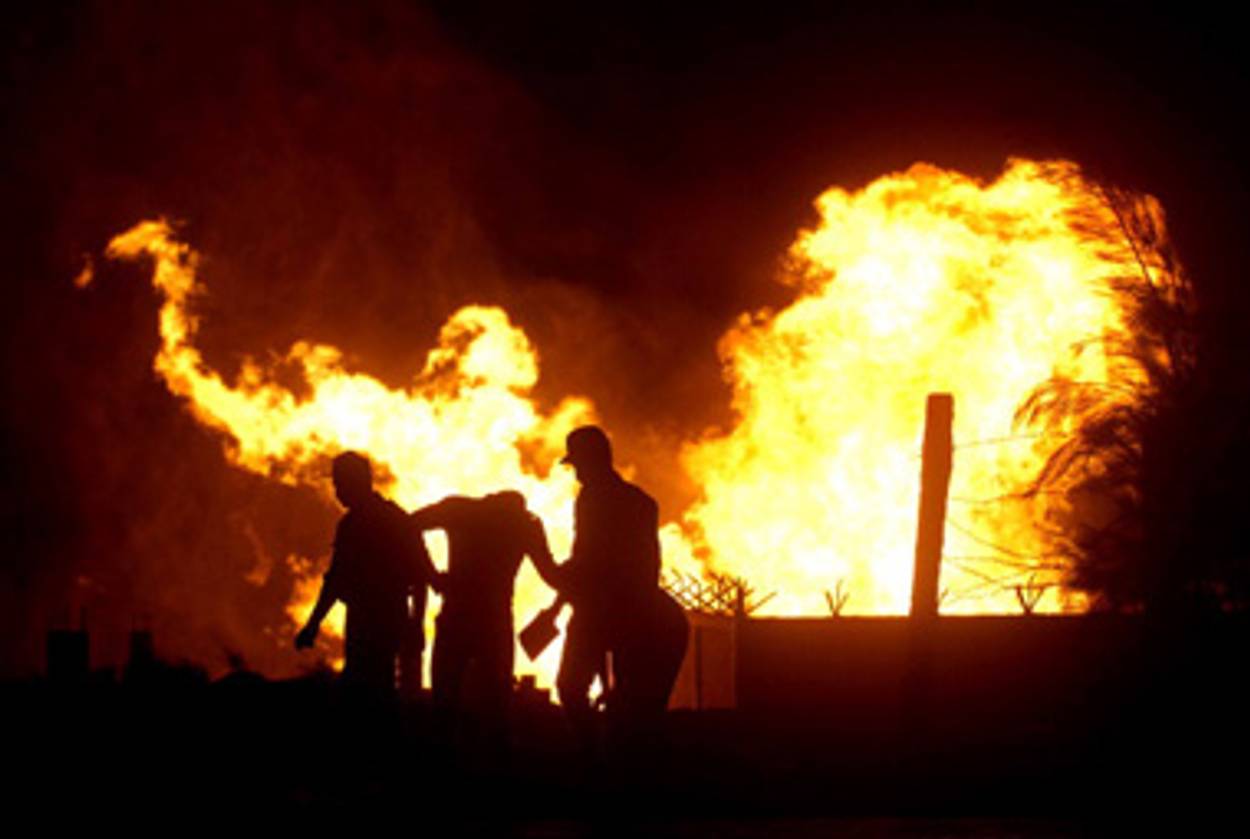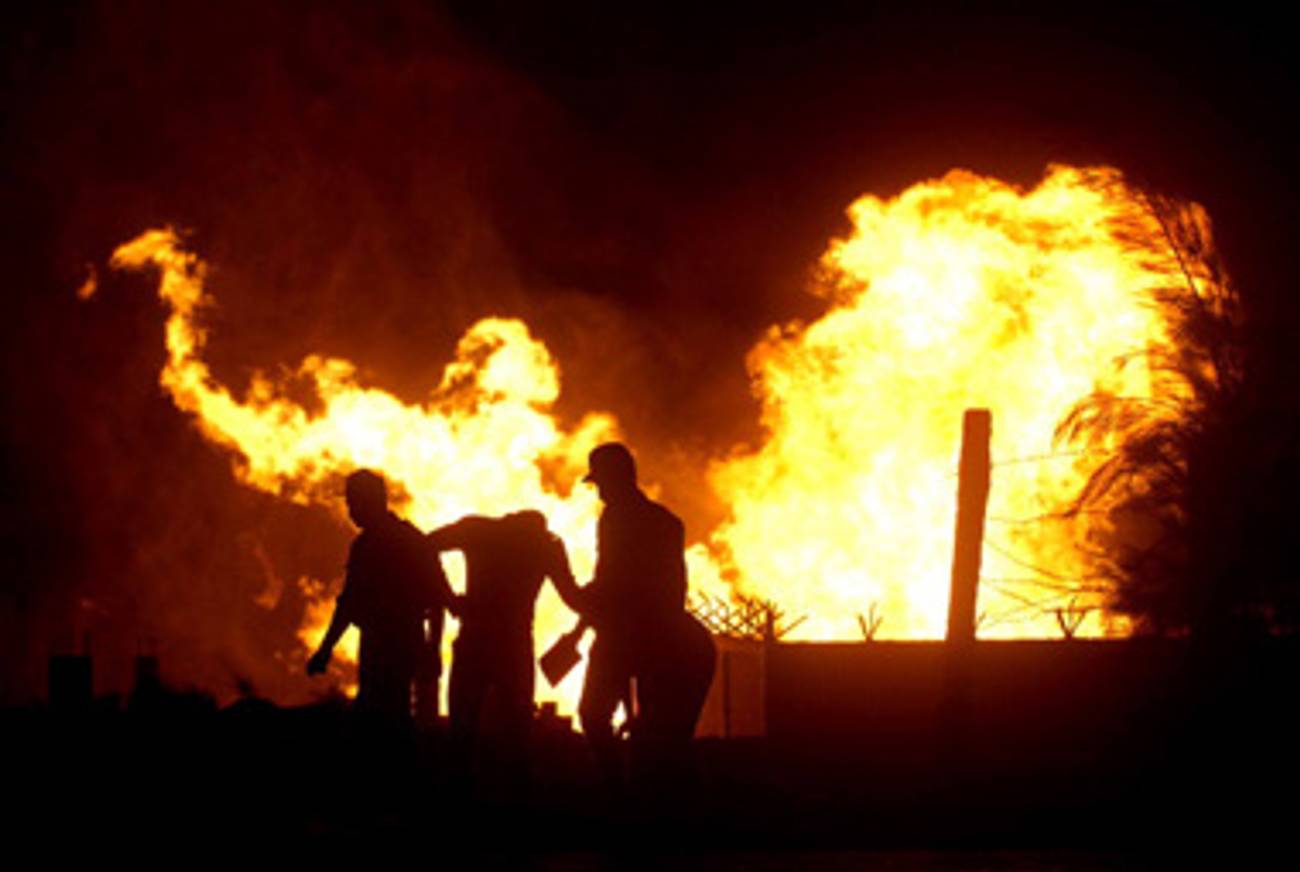Yet Another Egypt Pipeline Explosion
Sabotages could break the Israeli peace, shove Jordan into Iran’s arms




What with the four attacks on it this year alone, you would almost think someone was really trying to disrupt Egypt’s natural gas pipeline, a major source of energy for both Israel and Jordan and, beyond that, a guarantor of economic ties and therefore of stability among the three countries. The latest attack came early this morning in the Sinai, at a pipeline terminal about 30 miles from the Israeli border. While in the past Bedouins have been accused of sabotaging the pipeline, given that this time the attack was staged by organized gunmen—they told the guards to leave, then went in and set the explosion—it seems more likely that these are hardcore Islamists who do not wish for the post-Mubarak Egypt to continue its peaceful ways with its northern neighbors.
As Uzi Landau, Israel’s interior minister, noted, the most important repercussions of the disruption are not strictly economic—Israel can get its electricity elsewhere in the short term, and in the longer term may, with the development of offshore natural gas fields, become a net energy exporter. Rather, the most important consequence of the continued disruptions in supply—as well as questioning over East Mediterranean Gas’s long-term deal with Israel, which allegedly set the price of gas at a below-market rate—is that energy deals between Egypt and Israel provide key reinforcement the two countries’ chilly but very real peace, and with longtime president Hosni Mubarak gone and elections to be held as soon as September, that peace needs all the buttressing it can get. “This was an anchor, perhaps the most important element of our peace agreement with Egypt from an economic perspective and it is slowly, slowly eroding,” Landau said.
And that’s just Israel. What of Jordan—the seemingly last pillar of (relative) stability in the Arab world, and the only other Arab country to have a peace treaty with Israel? It needs energy, too, and if it cannot get energy from Egypt, it may need to get it from the east—and is reportedly considering striking a deal with Iran. Which would be bad for pretty much everyone except Iran and its proxies, which apparently now include forces in Egypt powerful enough to disrupt the country’s lucrative energy exporting business.
‘Egyptian Economic Ties Eroding After Pipeline Blast’ [JPost]
Officials Say Gunmen Blew Up Terminal of Egyptian Gas Pipeline to Israel, Jordan [AP/WP]
Egypt Gas Disruptions Lead Jordan to Consider Iranian Alternative [Ahram]
Earlier: Sabotage Foreshadows Israel’s Energy Future
Israel-Lebanon Sea Border Dispute Heats Up
Marc Tracy is a staff writer at The New Republic, and was previously a staff writer at Tablet. He tweets @marcatracy.